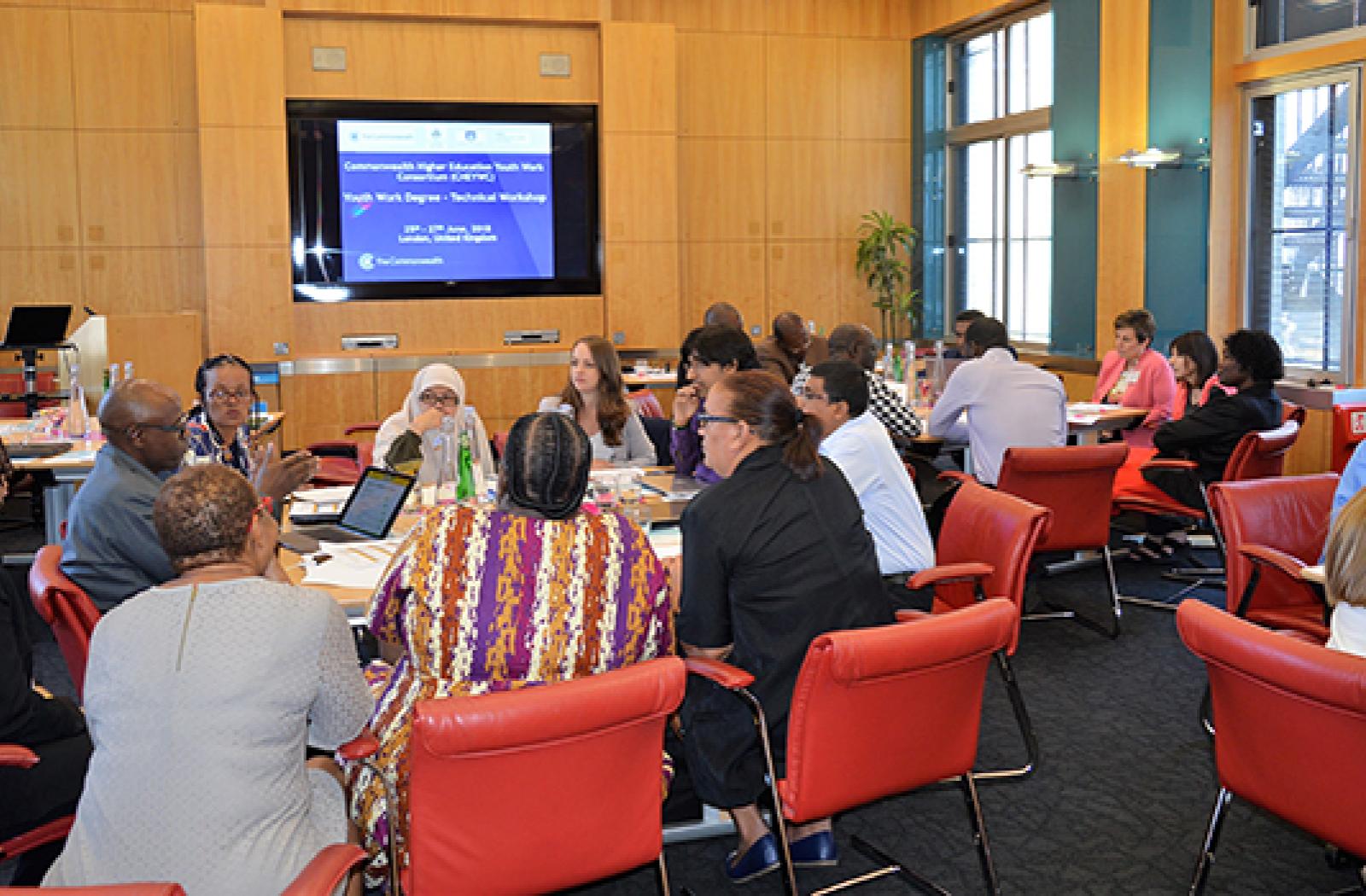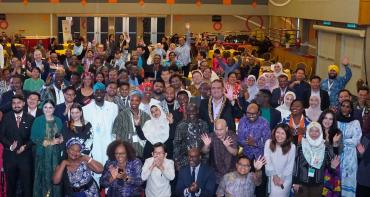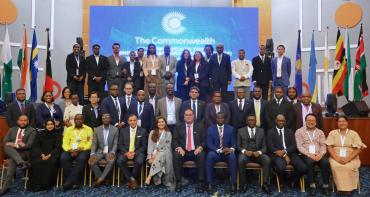Youth make up 60 per cent of the 2.4 billion citizens of the Commonwealth. But the potential of young people to drive social and economic progress is undermined by a lack of adequately trained youth workers to meet the growing demands of the youth sector.

Youth make up 60 per cent of the 2.4 billion citizens of the Commonwealth. But the potential of young people to drive social and economic progress is undermined by a lack of adequately trained youth workers to meet the growing demands of the youth sector.
By Amina Osman
Youth advocate and activist Nick Francis believes that young people are assets to national development, and ardently works to create a space for them to thrive in Caribbean societies.
Central to his work is advocacy for youth equal rights and participation in decision-making processes.
Jamaican born and Vincentian raised, it was his passion for youth work that brought him in 2012 to the newly introduced BSc in Youth Development Work programme, developed by the University of the West Indies (UWI), in partnership with the Commonwealth Secretariat.
Nick, who graduated class Valedictorian in 2017, enrolled in the programme because, he says, “I felt the need to have a deeper understanding of youth work…and to improve my service to the demographic, particularly in the areas of community development and political participation”.
He credits his knowledge and experience gained from the degree programme, in equipping him for his current role as a youth development and political consultant. Now, he trains young people and advocates to increase their voice and presence in political spaces, while advancing greater inclusion and participation of women and youth in decision-making.
The Challenge
Having competent, professional youth workers, such as Nick, lies at the heart of the Commonwealth’s commitment to contribute to a supportive, enabling environment for young people aged under 30, who represent more than 60 per cent of the 2.4 billion citizens of the Commonwealth. In fact, one in three young people aged between 15 and 29 live in Commonwealth countries: about 640 million out of 1.8 billion – which is the largest youth generation that the world has seen.
More than a third of the 169 targets of the global Sustainable Development Goals (SDGs), highlight the role of young people and the importance of their empowerment, participation, and well-being, to accelerate economic development, reduce poverty, and build sustainable societies across the Commonwealth.
The public policy response to this has been to employ youth work practitioners, who support young people as they transition to adulthood and become productive, peaceful and responsible citizens. Competent and qualified youth workers contribute directly to improved development outcomes for young people. At the same time, they guide young people towards driving innovation and making consumption choices for the SDGs.
Yet, despite the appropriate policy response, and the critical role of youth workers, the potential of young people to drive social and economic progress continues to be undermined by a lack of adequately trained professionals to meet the growing demands of the youth sector. Practical and competency based youth work training is limited, especially at Higher Education Institutions (HEIs) in the Commonwealth.
Strengthening the youth work sector
Working towards changing this landscape, the Commonwealth Secretariat in partnership with the University of the West Indies, and the Commonwealth of Learning, established a tripartite consortium in 2014 to support the implementation of the BSc Youth Work degree programme, across Higher Education Institutions (HEIs) in the Commonwealth.
Officially launched at the 9th Commonwealth Youth Ministers Meeting (9CYMM, Kampala, 2017) by President Yoweri Museveni, the Commonwealth Higher Education Consortium for Youth Work (CHEC4YW), held its first technical workshop from the 25th-27th June 2018 in London, United Kingdom.
The workshop was jointly hosted by the Commonwealth Secretariat, the Commonwealth of Learning, the University of the West Indies, and the YMCA George Williams College, and brought together 33 participants from 18 countries and 23 institutions across the Commonwealth to determine a plan of action and road map, to support programme implementation across Commonwealth HEIs. Participants included senior representatives from HEIs, Commonwealth Alliance of Youth Work Associations, and Government Ministry officials.
The technical workshop is the first in a series of offline and online activities geared towards developing a framework of open sharing in the Commonwealth, to improve educational and learning access, with a focus on developing the workforce in member countries. It forms part of the CHEC4YW project which will invest in the education sector, to support youth workers by promoting their professional recognition, education, and training
Speaking about his personal and professional benefits gained from the BSc Youth Work degree programme, Nick Francis says:
“During the programme, the Applied Social Research 6 credit course allowed me to plan and execute a participatory research project on Teenage Pregnancy in a rural community in St. Vincent and the Grenadines. I was able to report my findings in various research forums and worked with local churches and community groups to take action towards addressing the problem. This is a very important aspect of the programme, and it is a great avenue to improve on our research deficiency regionally.
The programme demonstrated through theoretical and practical knowledge that youth must first be seen as assets to development rather than problems to be fixed.”
For further information on the Commonwealth Higher Education Youth Work Consortium and the Youth Work Degree project, please contact: Amina Osman at [email protected]



